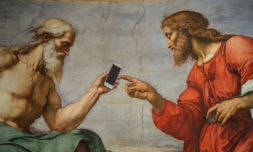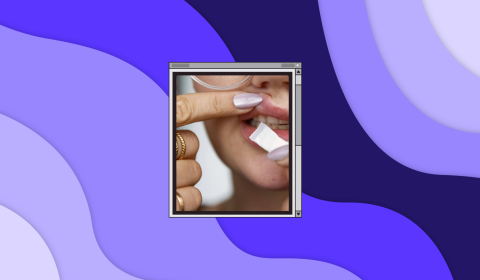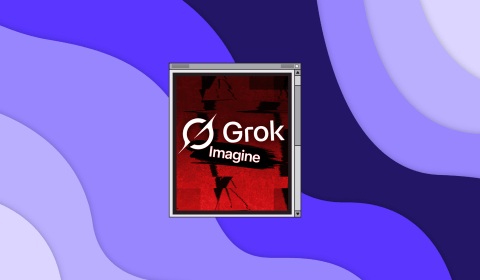Bumble seems to think so
![]()
Welcome to the latest edition of The Gen Zer. This week, we’re diving into the notable ways in which social media has changed young people’s approach to relationships and what the apps are doing to adapt. We also take a look at Gen Z’s dangerous quest for gains, holiday spending habits, and more…
It may well be cuffing season, but single Gen Zers aren’t fussed about finding short-term romantic partners to spend the colder months with. Or at least if they are, they’re being more cautious with their choices.
This is what a recent report from Bumble just uncovered – that dating in the digital age is something of a phenomenon and that young people are leading the charge.
According to the app’s findings, Gen Z’s approach to relationships is very much in flux thanks to a social media-induced push for more real-ness, more honest discourse, and more community-building.
Essentially, dating isn’t going anywhere, but outdated timelines, settling for too little or putting up with too much, and failing to vocalise wants, needs, and values most definitely is.
It’s common knowledge that Gen Z is the most tech-savvy generation, part of which involves moving with the tides.
In this instance, that means keeping up with (and changing in line with) trends – trends that are increasingly orientated towards total transparency and rejecting the constant strive for perfection.
With social media allowing young people to explore their identities creatively, diversely, and, above all else, authentically, when it comes to forming IRL connections, freedom of expression plays a sizeable role.
After surveying 40,000+ members, here’s how Bumble thinks this’ll translate into dating over the next year.
For starters, the app predicts that micro-mance will be all the rage.
According to Bumble’s research, more than half (58%) of British women are self-proclaimed romantics who LOVE love; their openness about this a result of netizens ‘embracing the cringe’ and showing heightened interest in PDA and meet-cutes.
This being said, however, Gen Zers aren’t so swayed by grand gestures – the type you see on-screen – preferring feelings that are conveyed minimally but with an impact (hence, micro).
This could be anything from meme-sending to playlist-curating. What’s notable is that Gen Z is displaying affection very differently nowadays, a shift that the majority (86%) of those surveyed are aware of.
Bumble also predicts that relationship content will continue to have significant influence over how Gen Z navigates dating, with the recent surge in Date With Me (DWM) videos, live-streamed break-ups, hard launches, and post-date debriefs proof that dating has ‘become our new favourite reality show.’
Exposed to the highs and the lows, young people are inspired to set healthier intentions, spot potential red flags, and have important conversations earlier on.
That last one also aligns with the future-proofing that Bumble predicts will shape the dating landscape in 2025, as finances, job security, housing, and the climate crisis are all top of mind for Gen Z – and likely to be brought to the table from the get-go.
In fact, 95% of those surveyed said their anxieties about the future are affecting who and how they date.
For 59%, this is incentivising a stronger appreciation for stability and desire for a partner who’s emotionally consistent, reliable, and has clear life goals.
In present terms, young people are equally as committed to be on the same (fan) page as who they’re dating, perhaps for a bit of relief from all that worrying about what’s ahead.
The burgeoning pivot to offline community-building is largely behind this, with Gen Zers’ growing participation in clubs, fandoms, and niche activities defining their perception of compatibility.
Nearly 2 in 3 (60%) of those surveyed by Bumble said that unique and quirky interests are now key to attraction and 3 in 5 (59%) said that ‘geeking out’ on something is a form of intimacy.
In other words, whether it’s cold plunging or crocheting that you’re into, leaning into these passions is a big plus.
Finally, Bumble’s remaining two predictions are centred around men.
The app foresees that male-casting – aka how the explosion of male archetypes in pop culture has led to a wider discussion on how we identify ideal (or not so ideal) characteristics – will be confronted, with 1 in 4 (29%) of those surveyed saying that these tropes and stereotypes can generate false assumptions about their personality and intentions.
This poses a question: is dating in 2025 looking to balance the scales?
The rise of the guy best friend would have you assuming so, with number six on Bumble’s Hot Takes list touting the benefits of women being more open with their male pals about their relationships and relying on them for an explanation for men’s dating behaviour (unfortunately, there often isn’t one).
Ultimately, dating has forever transformed. Gen Zers aren’t giving up (yet) – they’re actually more determined than ever. A massive 72% of those surveyed on a mission to find a partner by 2026, but tolerance has declined, compromises are being made less, and being outspoken is in.
‘What we’re seeing is a big shift towards real-ness, people are being increasingly more transparent, future-proofing themselves, and taking the time to find somebody to support their unique interests before committing to a relationship,’ says Bumble’s Chief Marketing Officer, Selby Drummond.
‘Regardless of whether they are looking for something casual, something serious, or something in between, these trends reflect what we’ve heard from our community, which is that they are looking for engaging conversations that lead to authentic real life connections.’
See also:
- Gen Zers are causing a boom in… romance
- Everything is a membership now
- Can book clubs help solve Gen Z loneliness?
Gen Z around the Web
Spotify wrapped is the most immersive yet (thred)
The internet has been up in arms with the delayed release of Spotify Wrapped, but the highly anticipated drop yesterday offered an immersive journey like no other before it. Every year, the trailblazing year-in-review adds new features and 2024 upped the game even further with AI-generated podcasts, vibe-of-the-month descriptions, and pop-up events across London to celebrate the seemingly universal use of Spotify. Read more
Gen Z’s Dangerous Quest for Gains (Mens Health)
A worrying pattern that’s been quietly emerging is now making headlines. ‘Muscle dysmorphia’ or ‘bigorexia’ are terms associated with male body image issues being exacerbated by relentless social media algorithms and exposure to dangerous supplements on social media. The fine line between maintaining health and overexertion can have serious repercussions. Working out to feel better versus to look better is something to be mindful about. Read more
‘We Listen and We Don’t Judge’ TikTok Trend: Why Relationship Therapists Are Wary (Well and Good)
This is one of my favourite trends at the moment, with some hilarious confessions getting dropped for the entertainment of the internet. Beyond its comedic element, however, therapists are concerned about couples doing the challenge. This is because the repeated reassurance of ‘no consequences’ to comfort participants can be mistaken for lack of care. Couples should absolutely embrace vulnerability, but when it’s uploaded to millions, the dynamic can shift fast. It’s all fun and games until it gets a little too real, right? Read more
The average Gen Z Christmas budget is only 30€ this year (NSS Mag)
It’s a universal experience that Christmas sneaks up on us all, but Gen Z has been reported to have gift budgets set at $30 this year. Adding to that, our approach to gift planning is… let’s call it unique. About 60% of our presents are bought on impulse, while 30% are panic purchased at the last minute. I do realise these stats don’t paint us in the best light as gift givers but better bought late than never. 😉 That said, our enthusiasm for giving remains steady, tough times call for tough budgets, but it’s the thought (and maybe the sales) that count. Read more
That’s all for this week! Make sure to subscribe for the latest on Gen Z and youth culture, and check out The Common Thred for a weekly roundup of the latest news, trends and thought pieces.

















